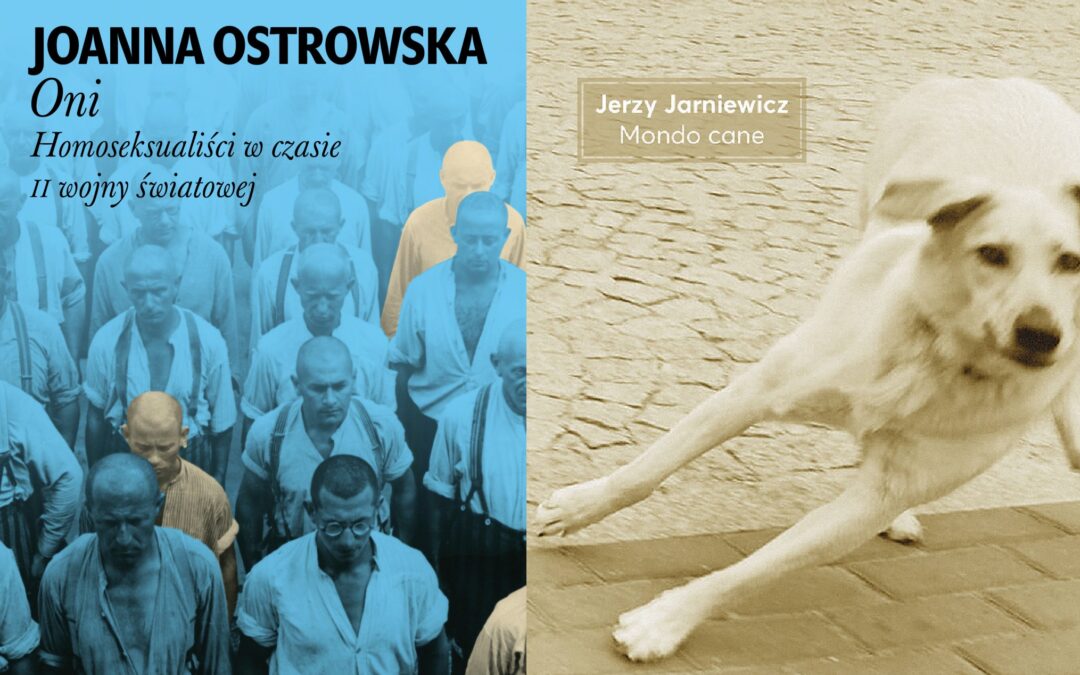Poland’s top annual literary prize has been awarded to Jerzy Jarniewicz for his volume of poetry Mondo cane. The readers’ award, voted for by the public, has been given to Joanna Ostrowska for a book on the persecution of homosexuals by Nazi Germany during the Second World War.
The Nike Literary Award is given annually for the best book published in Polish over the last year. Previous recipients have included two Nobel Prize winners, Czesław Miłosz and Olga Tokarczuk (twice).
The event has also often been used to make political statements. Last year saw protests against the treatment of asylum seekers trying to cross the Belarus border and this year the head of the jury, Przemysław Czapliński, spoke out against Poland’s blasphemy law.
“We do not like the ease with which the authorities sentence for offending religious feelings,” said Czapliński, who along with other jury members wore a T-shirt referring to article 196 of the criminal code, which punishes offending religious feelings with up to two years in prison.
While the law has long been on the books, it has been increasingly put to use under Poland’s current national-conservative government.
Meanwhile, nominees for the award held up signs at yesterday’s ceremony bearing the name of Mahsa Amini, the woman who died after being detained by Iran’s morality police, sparking large-scale protests against the country’s Islamic regime, reports Newsweek Polska.
Manifest jury i nagroda dla poezji. Znamy laureata Nagrody Literackiej Nike 2022 https://t.co/LEgJbDHYCw
— NewsweekPolska (@NewsweekPolska) October 2, 2022
Mondo cane (meaning “Dog’s World”, and also the name of an Italian film from 1962) is the 17th collection of poems by Jarniewicz, who was previously nominated for the Nike award in 2008. The work is an “extraordinary exercise”, said Czapliński.
In the book, the 64-year-old Jarniewicz “records the deaths of his friends, breakups, departures – and ruthlessly observes his own reactions to [them]…[and] the weaknesses of his own, ever-more-ailing body”, writes the publisher, Biuro Literackie.
“It seems that for Jarniewicz everything that disappears is doomed to ‘nullity’,” added Czapliński. “But when the author writes against disappearance, he mixes elegy with hope, meaning that he looks at the past as not entirely defeated – still salvageable, recoverable, saveable.”
Literacka Nagroda Nike przyznana.
Laureatem tegorocznej edycji został Jerzy Jarniewicz za książkę poetycką Mondo cane.https://t.co/fNOB35DUPb
— Agnieszka 🇵🇱🇪🇺 (@Agniesz61796740) October 2, 2022
Each year, the public is also given the chance to vote for a winner among the seven nominees in an online poll. This year’s readers’ award went to Ostrowska for her book of historical reportage They: Homosexuals during the Second World War.
In the work, Ostrowska notes the double tragedy of those who were persecuted under the Nazis’ anti-homosexuality laws: as well as facing imprisonment (and often death) in concentration camps during the war, they then saw their suffering ignored in subsequent decades while other victims were commemorated.
The author told Newsweek earlier this year that still today there is little commemoration of gay victims at the sites of former concentration camps, many of which are now located in Poland. Her book “fills in another blank page in historical memory, restoring the voice of the forgotten victims of German Nazism”, writes TVN24.
Adam Michnik, editor-in-chief of liberal daily Gazeta Wyborcza, which organises the Nike awards, said at yesterday’s ceremony that Ostrowska’s book is “damningly relevant” today, a presumed reference to the anti-LGBT campaign led by Poland’s government, of which Gazeta Wyborcza is a strong critic.

Daniel Tilles is editor-in-chief of Notes from Poland. He has written on Polish affairs for a wide range of publications, including Foreign Policy, POLITICO Europe, EUobserver and Dziennik Gazeta Prawna.




















